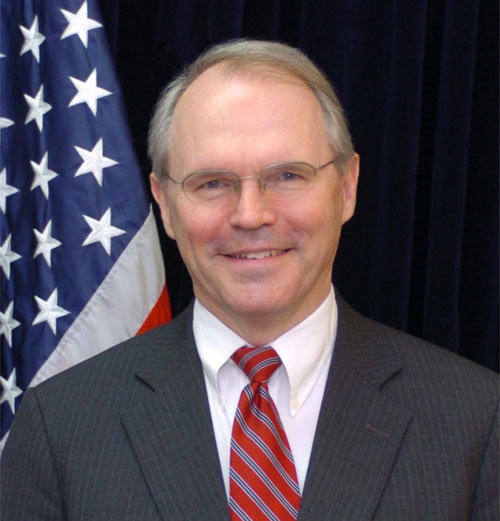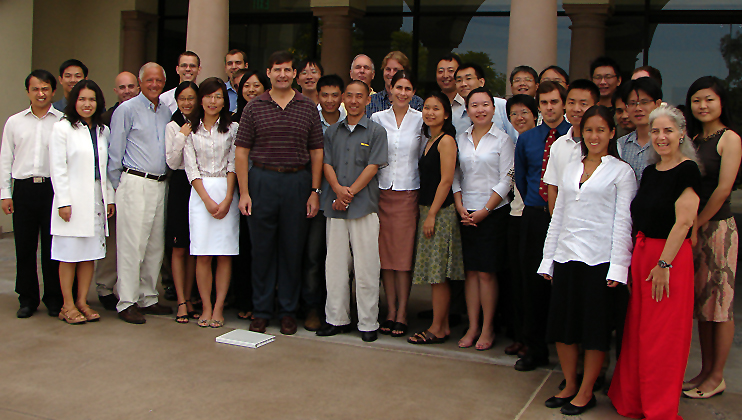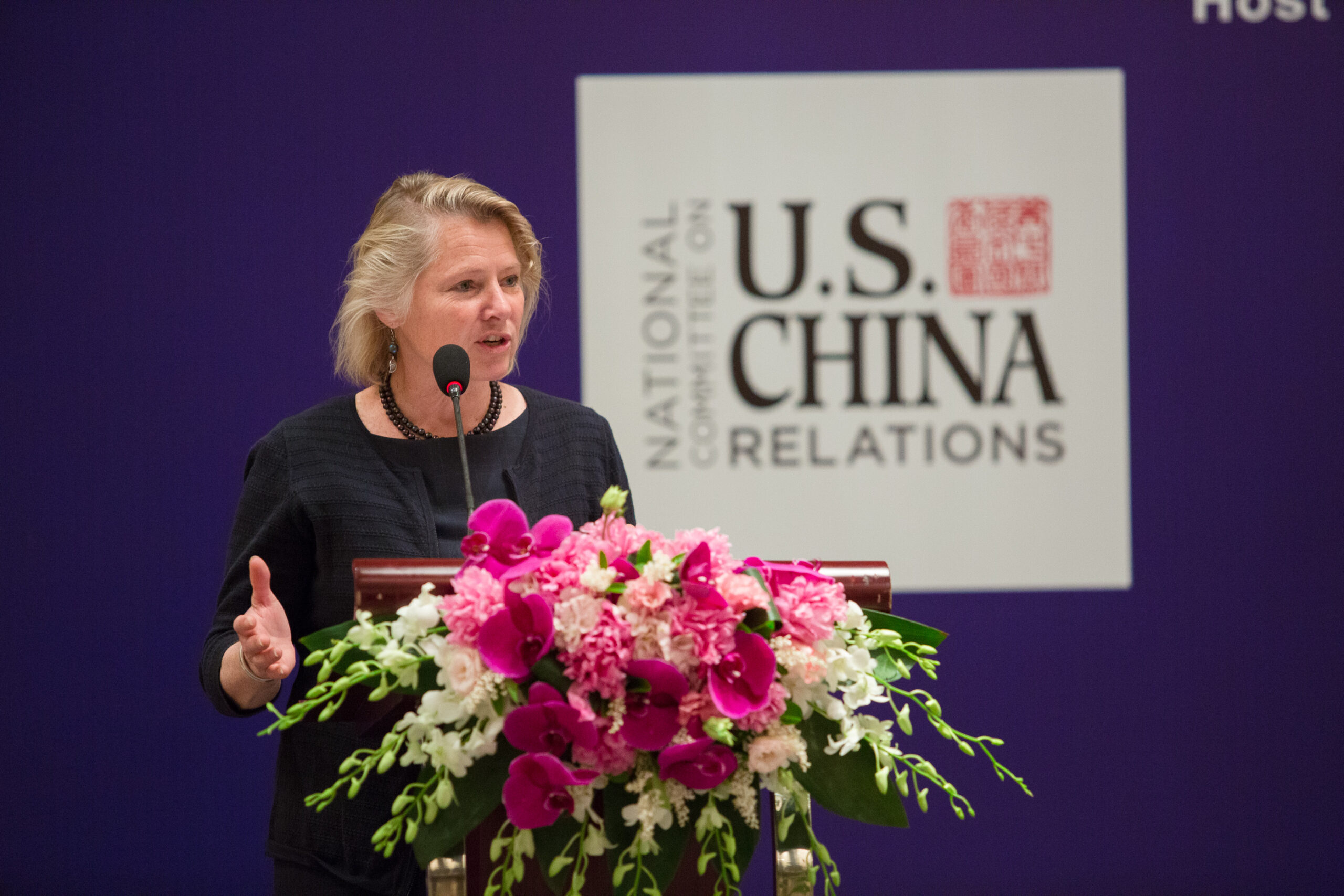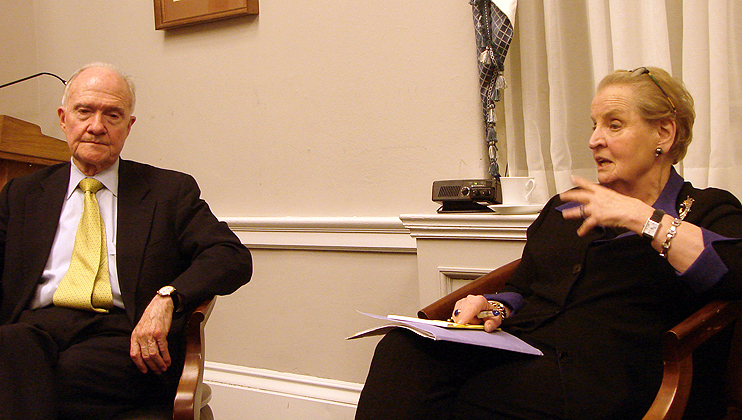Professor Lucian Pye and Professor Robert A. Scalapino, two distinguished scholars in the field of U.S.-China relations who have served as National Committee chairmen, discussed the founding of the National Committee, its work over the past 40 years and the role it might play in the future at a May 3 anniversary program in New York City. National Committee chair Carla Hills welcomed the many current and former directors, members and guests who attended the program.
In his remarks, Ambassador Hill underscored the essential role of multilateralism in the Six-Party process, as it provided the means for different countries with the same interests to bear on the challenge of denuclearizing the Korean peninsula.
As part of an overall strategic review, the Rockefeller Foundation asked the National Committee to help it look at how China’s emergence affects the foundation’s strategies and goals. The China Project is an ongoing series of seminars and discussions begun in 2005 with the aim of providing the Foundation staff an opportunity to examine the global and regional impacts of China’s rise and its implications for Foundation programming around the world. The focus is on issues the Foundation staff identified as important to their programmatic goals.
In 2003, the Ford Foundation commissioned the National Committee to conduct a survey of programs addressing Sino-American relations and security issues. The resulting report was updated in 2005 and again in 2006.
In 2006, ten promising graduate students were selected from the United States to join with ten each from mainland China and Taiwan to participate in a National Committee's conflict resolution program.
Susan A. Thornton delivered the 2019 Barnett-Oksenberg Lecture on Sino-American Relations in Shanghai on May 15, 2019. Now in its twelfth iteration, this annual lecture affords the opportunity for a frank and forthright discussion of current and potential issues between the two countries; it is the first and only ongoing lecture series on U.S.-China relations that takes place on the Mainland.
During the opening months of the 113th session of Congress, the National Committee again organized a briefing for freshman Members of Congress on critical issues in the U.S.-China relationship. Headlined by Governor Jon Huntsman, former Ambassador to China (and a former National Committee Director), this session was the fourth of its kind in as many election cycles. Governor Huntsman drew on his vast experience with China to comment on the present-day bilateral relationship in an off-the-record session on Capitol Hill.



